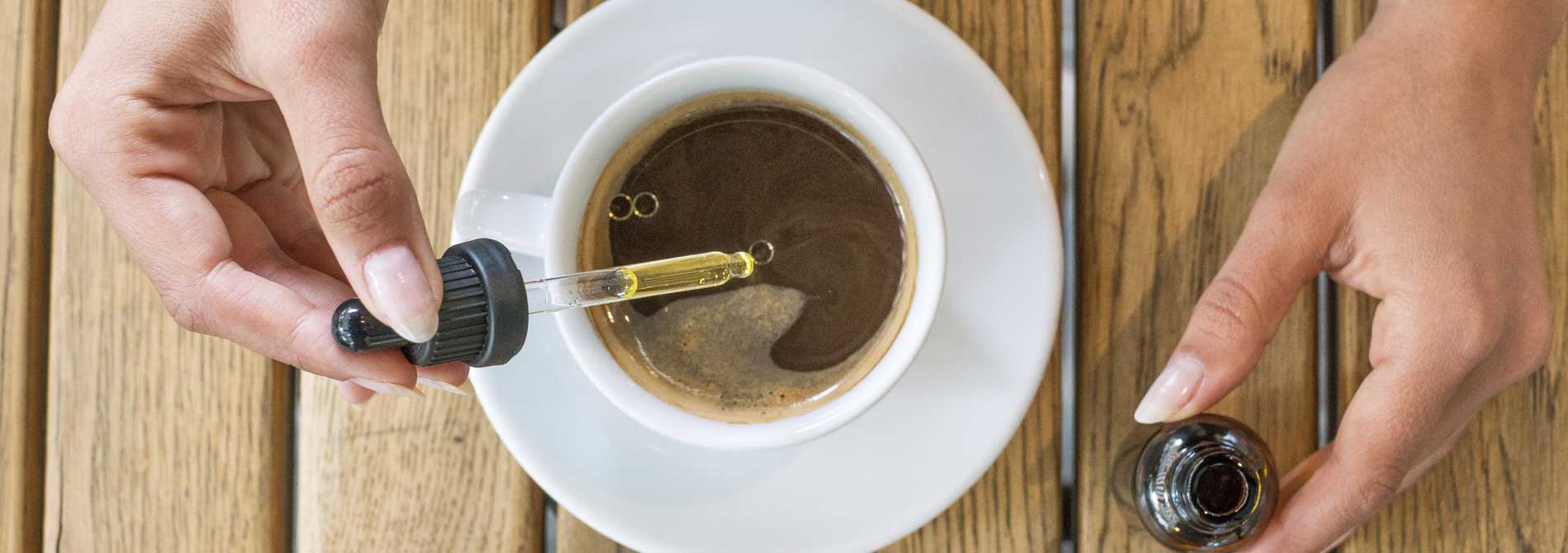In states where CBD has become legal, it’s received a lot of attention for its potential benefits. Brick-and-mortar and online stores devoted to selling it have popped up virtually everywhere to cash in on its popularity. The appeal to use it to treat a variety of disorders is strong, too. But, before you think about jumping on the CBD bandwagon, there are a few things you should know first. With the popularity of CBD products, you may be asking yourself, “Can I use CBD to stay sober?” The quick answer is no. Research about the effectiveness of CBD with substance use disorders is still in its infancy. Also, using CBD oil comes with numerous side effects, including nausea, vomiting, and dizziness. It’s important for people with an SUD looking for CBD health benefits to discuss its risks with family members or their doctor before using any CBD product.
If you or a loved one need help, call our admissions team today at 561-841-1033.What is CBD?
CBD is the abbreviated name for Cannabidiol, a drug found in marijuana and hemp. It gets extracted from a cannabis plant and mixed with an oil. That’s why you’ll hear it called CBD oil as a product. The oil itself can be coconut oil or hemp seed oil. Unlike THC, CBD doesn’t get its users high. In fact, many CBD oil products come from hemp because of its low amount of THC. The hemp seed oil added to CBD doesn’t contain any CBD or THC, even though it comes from the same plant.
Is CBD effective in treating substance use disorder?
Marketing messages may suggest CBD oil could be used to treat a substance use disorder. Also, users with SUDs may hear anecdotal evidence that CBD oil reduces symptoms. Either way, the product is still new and researchers aren’t drawing conclusions yet about its safety and effectiveness for people with drug and alcohol addiction.
Can CBD be used to treat something other than addiction?
CBD oil is being marketed as a solution for a variety of conditions. They include anxiety, depression, seizures, migraines, and pain and inflammation. Irritable bowel syndrome (IBS) is on the list of ailments being treated with it, too. More significantly, research has offered evidence of CBD oil’s effectiveness in treating childhood epilepsy.
What concerns are related to CBD use?
It’s been documented that using CBD oil may reduce the severity of the conditions mentioned above. At the same time, users may experience numerous side effects. Anxiety, changes in appetite, dizziness, fatigue, and mood changes may appear. Other possible side effects include nausea, diarrhea, and vomiting. Is CBD addictive may be one of the most common questions for people considering its use. While it’s not considered addictive, using CBD oil comes with several other risks. There’s a lack of regulation in the industry. It may be sold as a solo product or mixed with food, beverage, and other kinds of products. Labeling of these products may be inaccurate. Online sales of CBD products appears to be the source of the most significant labeling issue. Insufficient research is another concern.
How is CBD legal?
The legalization of CBD throughout the United States is still new and often misunderstood. State laws can restrict how it can be sold in that particular state. For example, some states don’t permit selling it in edible products. This limited capacity for sales is meant to provide some protection for users. When looking at each state for guidance, you’ll see 12 states allow almost every type of CBD. As of 2020, 28 states allow the medical use—not recreational use—of marijuana-based CBD. This list includes Florida and neighboring Alabama and Georgia. 10 states don’t allow any type of marijuana-based CBD, and two states ban hemp-based and marijuana-based CBD.
How should you communicate about CBD use with those close to you?
A person with a SUD who’s in recovery needs to make informed decisions about what strategies to use to stay sober. The appeal of CBD oil marketing may be strong, but it’s important to know the facts when considering using it. Talking to loved ones about your interest in CBD oil can help. An open discussion about it should include the source of your information about CBD oil, why you think it will help you, and what risks may be involved. Ask the question you want answers to, like “Can CBD help me stay sober?” It’s also important to recognize that these products are not a replacement for the other skills you are practicing to protect your sobriety.
Hanley Center is a well-known care provider offering a range of treatment programs targeting the recovery from substance use, mental health issues, and beyond. Our primary mission is to provide a clear path to a life of healing and restoration. We offer renowned clinical care and have the compassion and professional expertise to guide you toward lasting recovery.
For information on our programs, call us today: 561-841-1033.




